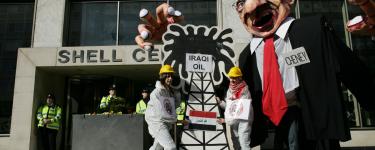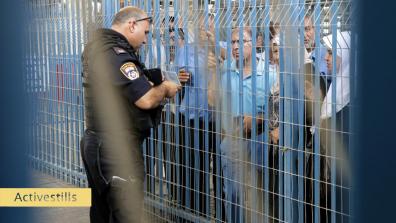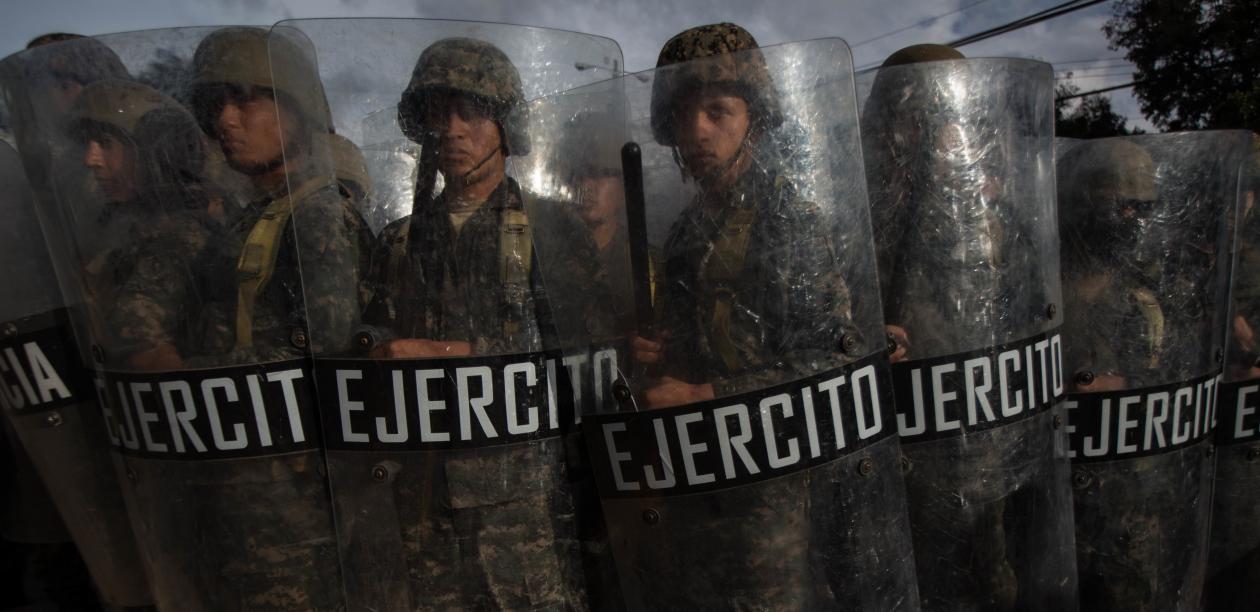Chilcot report: The heavy legacy of the Iraq war

Chilcot’s report is six years overdue; it’s expensive (costing the tax payer of £10.3 million); it’s lengthy (some 2.6 million words), yet on the on the eve of its publication we already know the Iraq war was illegal. That it was a product of lies, engineered by Blair and Bush in the cosy confines of the president’s Texan ranch – a far cry from the bloody battlefields of Iraq.
We know too the destruction and devastation this act of foolishness wrought; the immense human cost and suffering caused and the individual stories of tragedy. Death figures relating directly to the war vary considerably. One study estimates in excess of 650,000 deaths in Iraq.
War on Want opposed the war, joining millions more people in the biggest mass protests the country had ever seen. Yet we were all ignored.
The public is owed an explanation. So too are the families of the 179 UK service men and women killed in Iraq. Their loved ones marched into the desert on the back of a ‘dodgy dossier’ claiming Iraq had weapons of mass destruction that could be deployed within 45 minutes.
And what about the enduring injustice, poverty and instability the Iraq war leaves in its wake.
Take your pick: the refugee crisis, the rise of Islamic State, the war in Syria, not to mention the numerous other conflict zones around the world. They are all in one way or another connected to the illegal Iraq war and following occupation.
Reasons to be optimistic that any justice will result from the Inquiry are hard to find. It will focus on decisions made in the build up to the war, the military action itself and the aftermath and occupation. It will expose the mistakes made from the very start; mistakes built on a desire to appease the US and secure oil supplies.
We already know the war chest ran to billions whilst the reconstruction and development budget was in the millions. But will we ever know if MP’s had received the correct information and Britain had pulled back from the brink, would the US have still taken unilateral action without a UN mandate?
War on Want has consistently worked to expose the true nature of those decisions on the Iraq conflict and the impact of the war. We opposed going to war in 2002 demanding instead that the United Nations find a peaceful and lasting solution to the regional instability in the Middle East. Like the CIA, we predicted, correctly, that attacks on Iraq may further destabilise the entire region.
There were clear links between decisions to take military action and the demand for corporations to gain control of resources, mainly oil, in the region. As part of the Hands Off Iraqi Oil coalition we argued that since the start of the Iraq war in 2003, Shell had been at the forefront of efforts to influence Iraqi oil policy.
In another example of the creeping corporatisation of war, the conflict and occupation fuelled the growth of military and security companies. Following years of havoc wreaked by the private military and security companies in Iraq, in 2009 War on Want demanded that the British Foreign Secretary David Miliband scrap proposals for UK private military companies to police themselves. We knew that risked further killings in Iraq and Afghanistan.
This legacy of the Iraq war continues even now. Our 2015 Mercenaries Unleashed report detailed the emergence of a massive global private military and security industry after money and contracts flowed during and after the Iraq conflict. We continue to demand strong national and international regulation of private military and security companies including a ban on mercenaries' use in combat and combat support
The devastating influence of the Iraq war is all too clear. Yet in 2015, MPs voted to make things worse by bombing Syria, and the refugee crisis unfolded on the tidy beaches of Europe. This was ample evidence of the harm caused. The UK’s role in the crisis should have been cause for a vote against more conflict.
Had the Chilcot report been published and lessons learnt, maybe that vote would have gone the other way?
Chilcot will confirm the many catastrophic failures, mistakes and illegal actions over the Iraq war. It should confirm also that the strategic decisions made by the US and UK during the occupation of Iraq. We already know this led to the creation of Islamic State.
We maintain our original founding ethos that the only war worth fighting is the war on poverty and injustice.



